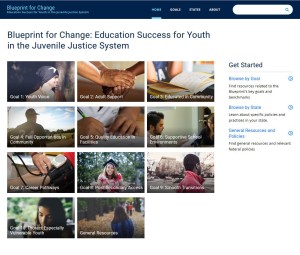May 6, 2017 – Philadelphia Inquirer – by Kathy Boccella
Loitering bands of aggressive, cursing students own the halls, constantly fighting or kicking each other. They slam teachers into lockers or walls. They barge in uninvited to disrupt classes. They tell adults who dare confront them to “get the [expletive] out of my face!” Continue reading
 ELC is proud to to announce the launch of a dynamic new website focused on educational success for youth involved in the juvenile justice system –
ELC is proud to to announce the launch of a dynamic new website focused on educational success for youth involved in the juvenile justice system –